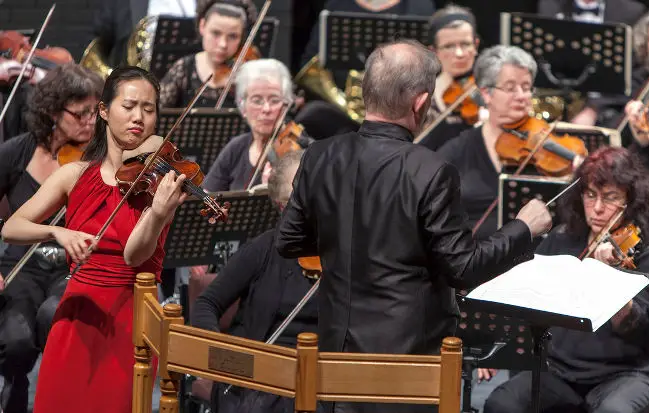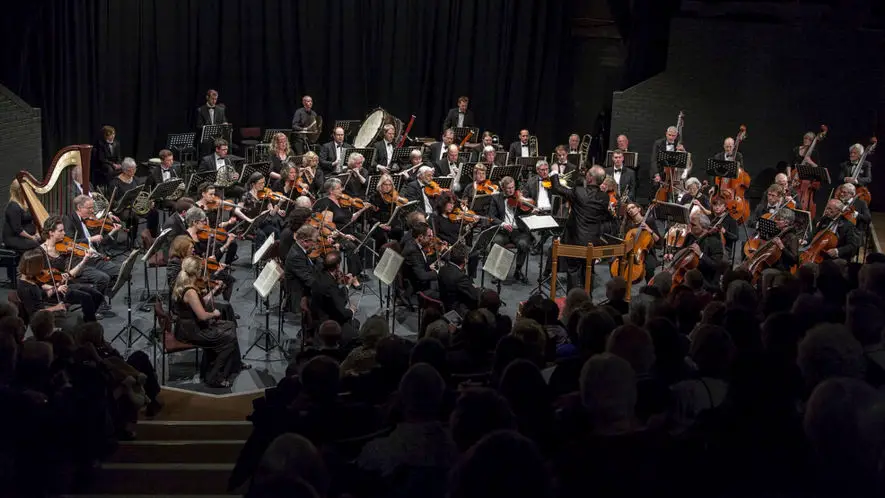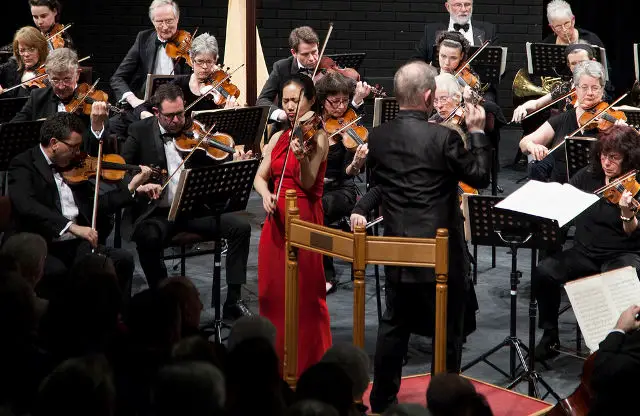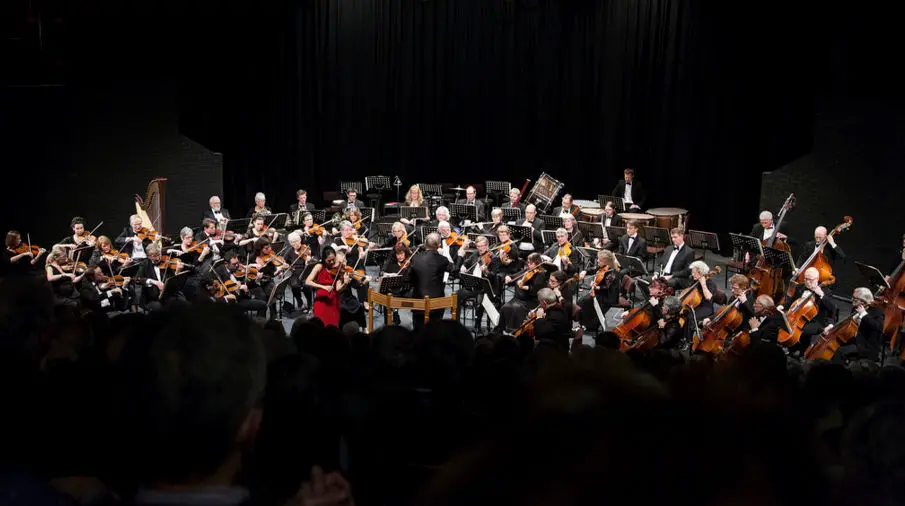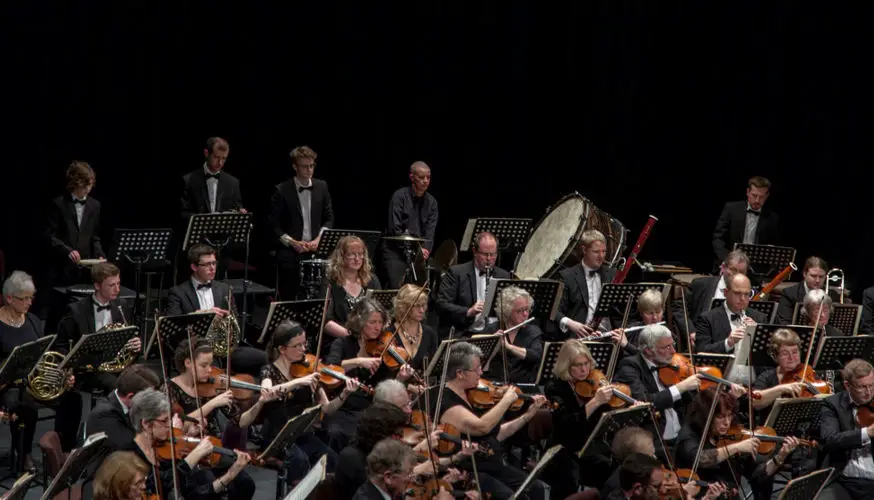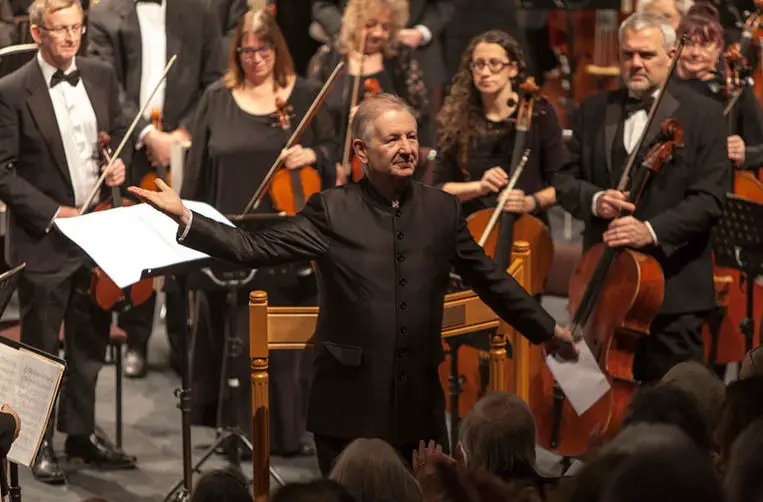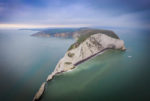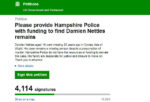Jonathan Dodd shares his review of the latest Isle of Wight Symphony Orchestra (IWSO) concert. Images with kind permission of Allan Marsh. Ed
Last Saturday was the second concert of the IWSO 2016-2017 season. It’s the middle of January, normally a time full of misery and despair, but Medina Theatre was packed out with an excited and anticipatory audience. There was a feeling that this concert was going to be a bit of an event. And so it was.
The first piece of music was by Charles Parry. The guest conductor, Mr Rupert Bond, gave an interesting introduction to Parry, saying he has been shamefully disregarded and under-performed. He promised that listening to parry’s Elegy in tribute to Brahms would go some way towards redressing this. And so it did.
Click on images to see larger versions
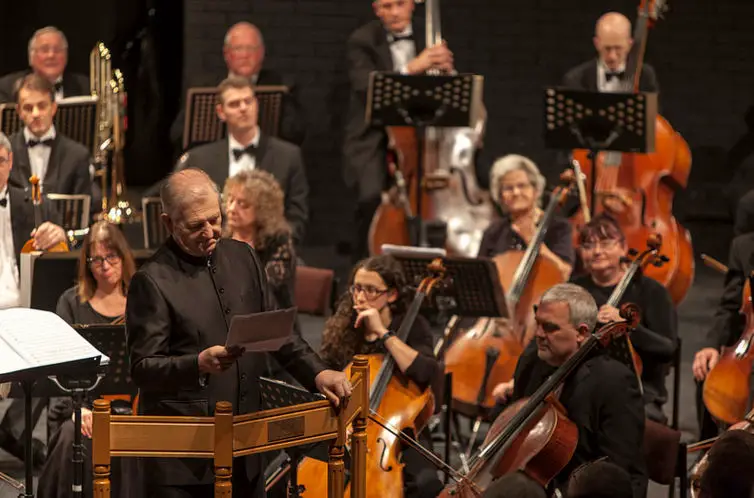
Not just a ‘one-hit wonder’
In Pop music there’s the phenomenon of the ‘one-hit wonder’. Quite often competent or great musicians achieve great fame from a single song, but somehow the public’s eye doesn’t stay on them, and they never achieve such heights again, even though they may continue to make great music. It seems as if Parry was one of those. How do you top the glory and instant brilliance of ‘Jerusalem’, for which he’s rightfully known? And if you’re a shy man who doesn’t push himself forward you might not be noticed as much as you deserve.
Parry’s hero was Brahms, and this piece was written in 1897 after Brahms died. It wasn’t even performed until 1918, and that was after Parry himself died. It was beautiful, and took the music of Brahms as an inspiration rather than quoting directly. It gently and lyrically used two contrasting themes and wove them together into a piece that expressed Parry’s admiration for the genius of Brahms rather than as a lamentation for him. It was lovely, and I will certainly listen to it again.
A fiendishly difficult concerto
The second piece of music was by Brahms himself. He only wrote one violin concerto, and it’s one of the greatest. Because he wasn’t a violinist, he asked a friend to review the music he wrote from the point of view of playability, but he didn’t follow all the advice. Consequently this concerto is thought to be one of the most difficult and challenging by violinists.
The soloist Joo Yeon Sir did not show any signs of being perturbed. She has a magnificent presence, and it’s difficult to take your eyes off her as she stands, completely involved in the music, before exploding into action with the bow. She was electrifying, and absolutely in command of the concerto right from the start. It looked fiendishly difficult to this non-violin-player, and it also looked like she was in complete mastery of it.
The additional pleasure of tis concerto, and this performance, is that it gives many opportunities for musicians in the orchestra to contribute their own solos throughout. I loved particularly the oboe part, played magnificently and with great feeling – and effort, by David Hutchinson. Well done all. As for Joo Yeon Sir, her playing was so precise even though it required so much stretching, and she extracted a fabulous performance not only from herself but from the whole orchestra. The audience even forgot convention and clapped spontaneously between movements.
Arabian Nights
After the interval the orchestra gathered themselves to play Scheherazade by Rimsky-Korsakov. This is a piece I’ve heard before, and I even knew a bit about it, which is a rare thing for a musical dunce like me. I did remember that it seemed odd to call it Scheherazade, the narrator of the Tales of the Arabian Nights, when the music was all about Sinbad and a lot of sailing. It turns out I was partly right and partly wrong.
After reading the always-excellent programme notes by Jane Pelham, I found out that Rimsky-Korsakov himself originally wanted to present it as a symphonic suite rather than tie it in to selected stories from the Arabian Nights, but was persuaded to write descriptions of the scenes when it was first performed. Marketing has always been with us. Personally, I don’t mind, and I wonder whether the great man himself would after all this time.
The voice of Scheherazade
The other thing I knew about this piece of music was that it feels almost like a violin concerto, with a solo violin playing variations of the same tune throughout. What I didn’t realise was that this is the voice of Scheherazade herself, weaving these exotic tales with her seductive voice. The violin was played on this occasion by Matthew Scrivener, the Leader of the Orchestra, confidently giving voice to this lush and romantic melody, as the orchestra illustrated the exotic oriental tales of voyages and adventure and love, and shipwreck.
So many members of the orchestra had solos and parts to play that it would be churlish to favour any one of them. This was a true orchestral performance, where all these individuals came together to make something memorable with their combined efforts and imaginations and enthusiasm. The audience showed their appreciation by clapping for several minutes and bows. This concert was definitely an event.
Next Concert
The next concert will be on Saturday 18th March, same place, same time. It’ll have a French flavour, and the wonderful Viv McLean will be performing Ravel’s Piano Concerto in G Major, which will be a treat, and there’s an intriguing thing called Les Biches by Poulenc, a Symphony by Franck, and finally a Bachanale from Samson and Delilah by Saint-Saëns. I can’t wait.
Get your tickets while they’re still available.
See you there.
Image: © With kind permission of Allan Marsh

